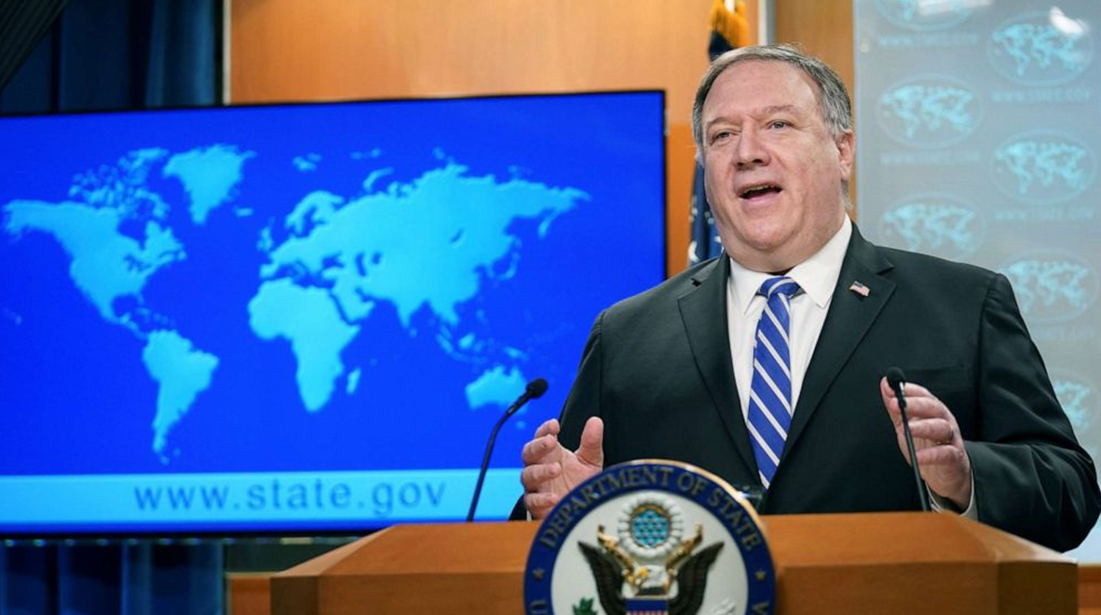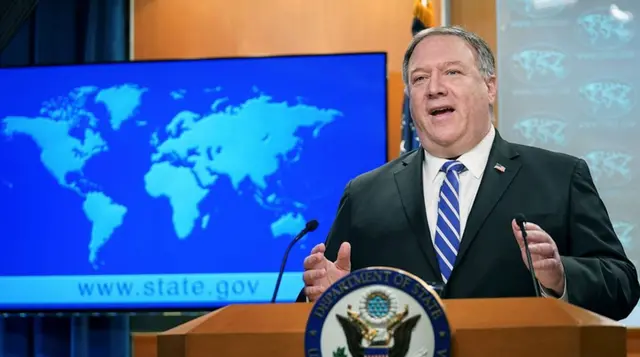First, there was SARS, then MERS and Ebola … Now, there is COVID-19, the latest and most deadly in a succession of viruses to hit the world in the 21st century. But what sets this virus apart from its predecessors is not just the scale of its global impact; it's remarkable also for how highly politicized it has become, with the issue of where exactly it originated being a particular bone of contention.
No one would dispute the need to find out all we can about a new disease, including its origin. That studies are undertaken as a matter of urgency is essential, if proper treatments and even a vaccine are to be developed. In the long term, the more we learn, the more effectively we may be able to prevent and treat the previously unknown diseases of the future. For example, the city of Wuhan benefited enormously when it came to building and operating specialist COVID-19 hospitals, by being able to reference Beijing's experience with a facility for treating SARS patients, 17 years earlier.
However, the answers may not immediately become obvious, and various theories may need to be explored before the true picture of the virus's origins and spread emerges. Until that happens, the debate should be confined to the rational world of science, and not become a speculative points-scoring exercise for politicians.
On March 17, the journal
Nature Medicine
published an article under the headline, "The proximal origin of SARS-CoV-2". It stated: "Since the first reports of novel pneumonia (COVID-19) in Wuhan, Hubei province, China, there has been considerable discussion on the origin of the causative virus, SARS-CoV-2 … Our analyses clearly show that SARS-CoV-2 is not a laboratory construct or a purposefully manipulated virus."
The research was carried out by a team from the highly-respected Scripps Research Institute in the U.S. Based on a comparative study with the available genome sequence data for known coronavirus strains, they concluded that the virus's origin was natural.
"We do not believe that any type of laboratory-based scenario is plausible," said team leader Kristian Andersen.
In an interview with
Vanity Fair,
Andersen went on. "What's important here is that we have exactly zero data suggesting it came from the lab, only speculation, and a lot of data showing it came from nature. Unless somebody can present any type of data that would suggest there is actually a link to a lab, the discussion is basically over."
His team's conclusion is consistent with a statement issued by the U.S. Office of the Director of National Intelligenceon April 30, which read in part: "The Intelligence Community also concurs with the wide scientific consensus that the COVID-19 virus was not man-made or genetically modified."
So, given the weight of scientific and intelligence understanding to the contrary, it is all the more surprising that the U.S. Secretary of State should claim, on May 3, that there is "enormous evidence" to support the theory that COVID-19 originated in a Wuhan laboratory. Although, three days later, he did concede that "we don't have certainty," he was still insisting, "there is significant evidence that this came from the laboratory." This was a direct contradiction of the assertion, made just a few days earlier, by Dr. Anthony Fauci, the country's top infectious disease expert, when he stated there was no evidence that the virus was "artificially or deliberately manipulated," and that all the signs indicated that the virus had "evolved in nature and then jumped species."
As America's top diplomat, Mike Pompeo should be playing a leading role in bringing countries together to fight COVID-19, and not indulging in idle and incendiary speculation.

Secretary of State Mike Pompeo speaks about COVID-19 during a media briefing at the State Department in Washington, D.C., May 6, 2020. /Reuters
As a former unnamed high-ranking State Department official told
Vanity Fair
, "We will need to work with the Chinese – and others – on global health, global economic, and global security issues. Picking a loud rhetorical fight accomplishes little for a long-term strategy to manage our China relationship."
So, what is the purpose of Mike Pompeo's persistent attacks on China? According to
Vanity Fair
, he's simply trying to please his boss. "Shifting blame to China for the coronavirus crisis is a central tenet ofDonald Trump's reelection campaign," the magazine states. "Secretary of StateMike Pompeohas stepped into the role of the president's most vocal abettor in pushing the assertion that the novel coronavirus outbreakoriginatedfrom a laboratory in Wuhan, China."
Mike Pompeo's China blame game may find resonance among a minority of American voters. But it comes at the cost of his own and his country's credibility.
 简体中文
简体中文

